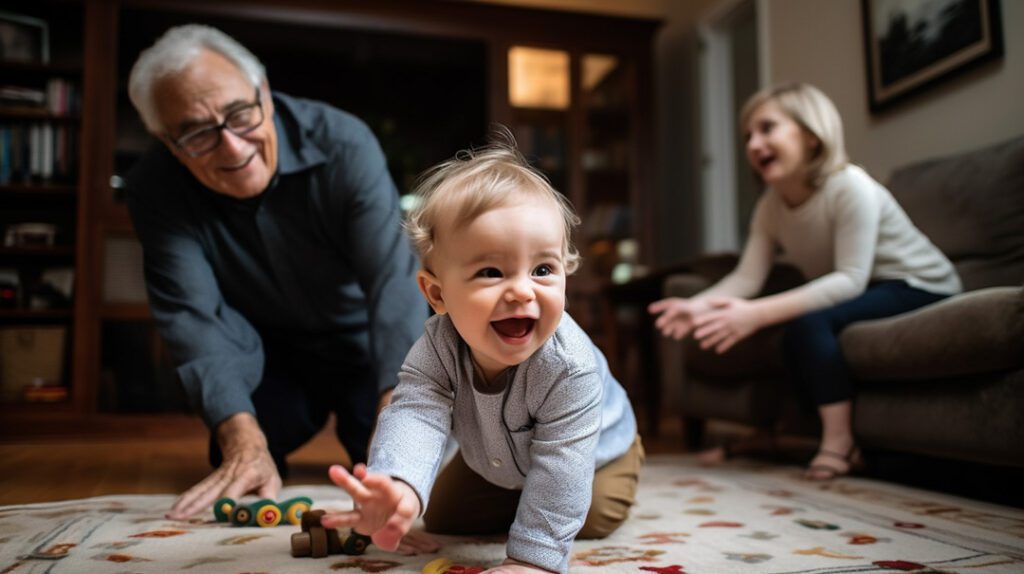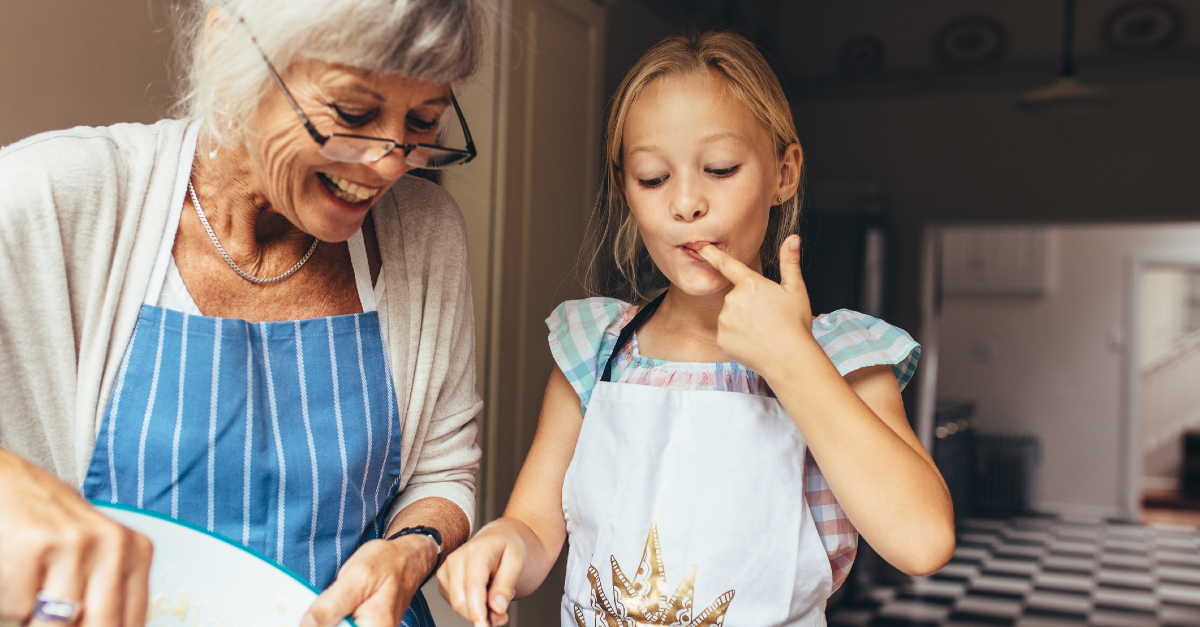Last Updated on April 18, 2024 by Silvy
The Importance of Grandparents in Raising Children: A Gift Wrapped in Wisdom and Wrinkles
In the grand tapestry of life, grandparents hold a particularly precious thread.
They are the seasoned storytellers, the dispensers of wisdom whispered down through generations, and the warm embrace that offers comfort and unconditional love.
But beyond the sentimental value, grandparents play a critical role in raising children. Their presence in a child’s life isn’t just a bonus; it’s a powerful force that shapes their development, fosters emotional well-being, and provides a unique kind of support that no other relationship can quite replicate.
Think of grandparents as a built-in support system, a safety net woven from love and experience.
They offer a helping hand to busy parents, alleviate childcare pressures, and provide a stable, nurturing environment for children to thrive. Their involvement goes far beyond babysitting duties.
They are the champions who cheer on every milestone, the confidantes who listen with open hearts, and the guiding lights who illuminate the path with their wisdom.
This article delves into the profound impact grandparents have on their grandchildren’s lives. We’ll explore the various ways they contribute to a child’s development, the unique benefits they offer, and the different roles they can play in a family dynamic.
We’ll also address some common concerns surrounding grandparent involvement and provide tips on fostering strong, healthy grandparent-grandchild relationships.
So, buckle up, grandparents (and parents too!), as we embark on a heartwarming journey to celebrate the irreplaceable role grandparents play in raising happy, well-adjusted children.

The Benefits of Grandparent Involvement
The advantages of having grandparents actively involved in a child’s life are vast and well-documented.
Here are some of the key benefits:
-
Emotional Security and Support: Grandparents offer a sense of stability and unconditional love that can be a source of immense comfort for children. They provide a safe space for grandchildren to express themselves freely, knowing they’ll be accepted and loved regardless. This emotional security fosters a child’s sense of self-worth and well-being.
-
Enhanced Cognitive Development: Grandparents can play a significant role in stimulating a child’s cognitive development. Through storytelling, games, and engaging activities, they can help children learn new things, develop problem-solving skills, and boost their creativity.
-
Stronger Family Bonds: Grandparents act as the bridge between generations, fostering a sense of family history and cultural heritage. By sharing stories and traditions, they connect children to their roots and create a stronger sense of belonging.
-
Improved Social Skills: Grandparents can provide valuable opportunities for children to develop their social skills. Whether it’s interacting with siblings, cousins, or friends, grandparents help children learn how to communicate effectively, share, and navigate social situations.
-
Practical Help and Relief for Parents: Let’s face it, raising children is no easy feat. Grandparents can offer much-needed practical help with childcare, transportation, or household chores. This frees up parents’ time and energy, allowing them to focus on their own well-being and strengthen their bond with their children.

The Different Roles Grandparents Can Play
Grandparents come in all shapes and sizes, and their involvement can vary depending on individual circumstances, family dynamics, and geographical proximity.
Here are some of the different roles grandparents can play:
-
The Active and Hands-on Grandparent: These grandparents are deeply involved in their grandchildren’s lives. They provide regular childcare, attend school events, and actively participate in their upbringing.
-
The Long-Distance Grandparent: Distance doesn’t diminish the love! Long-distance grandparents can stay connected through video calls, phone conversations, and frequent visits.
-
The Fun-Loving Grandparent: These grandparents are the ultimate playmates! They bring joy and laughter into their grandchildren’s lives with games, outings, and silly adventures.
-
The Wise Mentor: These grandparents offer guidance and support as children navigate life’s challenges. They share their experiences and wisdom, helping children learn from their mistakes and make positive choices.
-
The Cultural Keeper: These grandparents connect their grandchildren to their cultural heritage by sharing traditions, stories, and languages from their own upbringing.

Addressing Common Concerns
While grandparent involvement is undeniably beneficial, there can be occasional concerns.
Here are some common issues and how to address them:
-
Overstepping Boundaries: It’s important for grandparents to respect the parenting style of their children. Open communication and clear expectations can help ensure everyone is on the same page.
-
Favoritism: If there are multiple grandchildren, it’s crucial for grandparents to show love and attention equally. Focusing on spending quality time with each grandchild individually can help alleviate any feelings of favoritism.
- Undermining Parental Authority: Grandparents should avoid contradicting parental decisions or indulging in behaviors that undermine the parents’ role as the primary caregivers.

Fostering Strong Grandparent-Grandchild Relationships
Building a strong bond between grandparents and grandchildren is essential to reap the full benefits of their involvement.
Here are some tips:
-
Create Regular Opportunities for Interaction: Schedule regular visits, phone calls, or video chats. Encourage activities that grandparents and grandchildren can enjoy together, like baking, reading, playing games, or going on outings.
-
Encourage Open Communication: Foster an environment where grandchildren feel comfortable talking to their grandparents about anything, from their day-to-day lives to their dreams and concerns.
-
Respect Individual Preferences: Not all grandparents or grandchildren are the same. Some may thrive on active play, while others prefer quieter activities. Be mindful of individual personalities and preferences to create a comfortable and enjoyable environment for everyone.
-
Celebrate Grandparents: Make grandparents feel valued and appreciated. Let them know how much their involvement means to you and your children. A handwritten card, a thoughtful gift, or simply expressing your gratitude can go a long way.

Conclusion
Grandparents are a treasure trove of love, wisdom, and life experience. Their presence in a child’s life is a gift that keeps on giving.
By recognizing the profound impact they have and fostering strong relationships, we can create a nurturing environment where children can thrive and blossom.
Remember, grandparents are not just babysitters; they are cherished members of the family who play a vital role in shaping the lives of the next generation.
FAQs
How much time should grandparents spend with their grandchildren?
There’s no one-size-fits-all answer. The ideal amount of time can vary depending on individual circumstances, family dynamics, and geographical proximity. However, any amount of quality time spent together is beneficial.
Can grandparents spoil their grandchildren?
Grandparents can certainly indulge their grandchildren occasionally. However, it’s important to strike a balance and avoid undermining parental authority. Open communication and setting clear expectations can help ensure everyone is on the same page.
What if grandparents live far away?
Distance doesn’t have to diminish the bond between grandparents and grandchildren. Technology can be a powerful tool for staying connected. Regular video calls, phone conversations, and exchanging handwritten letters or drawings can help bridge the gap.
How can parents encourage grandparent involvement?
Open communication is key. Talk to your parents about your expectations and the kind of support you would appreciate. Be specific about activities or tasks you’d like their help with.
What are some signs of a good grandparent-grandchild relationship?
A strong grandparent-grandchild relationship is characterized by open communication, mutual respect, trust, and affection. Grandchildren feel comfortable confiding in their grandparents, and grandparents are actively involved and interested in their grandchildren’s lives.
Verified Sources
- American Academy of Child and Adolescent Psychiatry: http://www.aacap.org/
- The National Center for Grandparents and Families: https://www.gu.org/explore-our-topics/grandfamilies/
- AARP Grandparenting: https://www.aarp.org/caregiving/grandparents/


